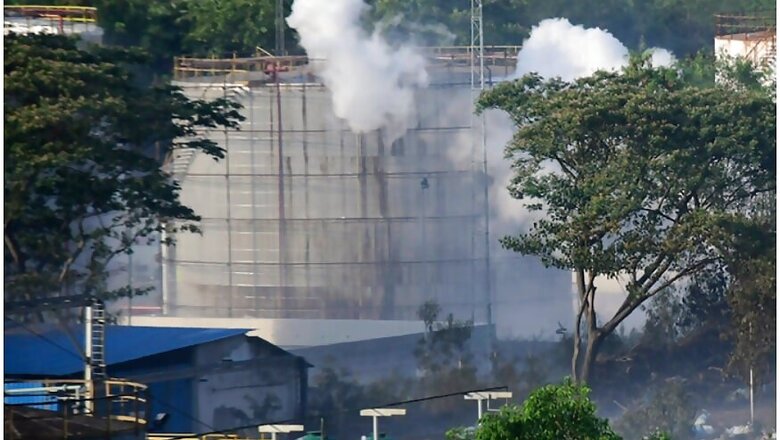
views
The recent deadly gas leak from a chemical plant in Visakhapatnam is a 'grim wakeup call' for the industry to recognise and meet its responsibility to respect human rights, a UN expert has said as he welcomed the opening of an investigation into the incident.
Special Rapporteur on hazardous substances and wastes Baskut Tuncak said in a statement that the gas leak from the multinational LG Polymers Plant at R R Venkatapuram village near Visakhapatnam draws parallels to the toxic gas leak that had killed thousands in Bhopal in 1984, involving another trans-national chemical company, Union Carbide of the United States.
"It also illustrates the range of human rights infringements brought by our rampant consumption and production of plastics," he said.
The Special Rapporteur said he welcomed the opening of an investigation, including possible charges of homicide. Reiterating his call made last year on the 35th anniversary of the Bhopal chemical disaster for the industry to implement human rights due diligence, he also urged authorities to be fully transparent and ensure those responsible are held to account.
Styrene gas leaked from the plant, owned and operated by South Korean company LG Chem, in the early hours of May 7 and quickly spread to villages in a five-kilometre radius, killing at least 11 people and impacting about 1,000, many collapsing to the ground as they tried to escape the toxic vapours.
The statement said that styrene is a substance used to make plastics that can cause cancer, neurologic damage, and harm reproduction, impacts which may not be apparent for years after the exposure.
Tuncak said he is concerned about ensuring that the victims of exposure who develop diseases or disabilities later in life are provided an effective remedy.
"I urge Indian and South Korean authorities, and the businesses implicated, to avoid the same mistakes and abuse of judicial procedures that have denied justice to the victims of the Bhopal disaster, who are still suffering to this day," he said.
Offering his deepest condolences to the victims of the Vizag gas leak, he said the incident is yet another preventable disaster within the chemical industry that has caused horrific suffering among innocent workers and local communities in India and is yet another reminder that around the world, mini-Bhopal chemical disasters continue to unfold with shocking regularity.
The statement said that the chemical industry's 'Responsible Care' initiative was adopted in 1986 after the Bhopal disaster in an effort to prevent further abuses of human rights by chemical manufacturers.
"Yet this industry initiative's principles contain no mention of human rights and fail to require that industry respects human rights in practice as required under the United Nations Guiding Principles on Business and Human Rights," the Special Rapporteur said.
The expert's appeal has been endorsed by the Working Group on the issue of human rights and transnational corporations and other business enterprises Surya Deva, Elzbieta Karska, Githu Muigai (Chair), Dante Pesce, Anita Ramasastry (Vice-chair), the Special Rapporteur on human rights and environment David Boyd and the Special Rapporteur on the right to physical and mental health, Danius Puras.
Tuncak of Turkey was appointed Special Rapporteur on the implications for human rights of the environmentally sound management and disposal of hazardous substances and wastes by the UN Human Rights Council in 2014.
As Special Rapporteur, he is part of the Special Procedures of the Human Rights Council. Special Procedures, the largest body of independent experts in the UN Human Rights system, is the general name of the Council's independent fact-finding and monitoring mechanisms that address either specific country situations or thematic issues in all parts of the world.
Special Procedures experts work on a voluntary basis; they are not UN staff and do not receive a salary for their work. They are independent from any government or organisation and serve in their individual capacity.



















Comments
0 comment